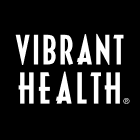
Does Plant-Based Protein Build Muscle? What Science Says
Yes, plant-based protein can build muscle when approached with intention. Despite lingering myths, research shows that muscle growth isn’t exclusive to animal products. What truly matters is your total protein intake, the balance of essential amino acids, and consistent timing around your workouts. While plant proteins differ slightly in digestibility and amino acid profiles, these challenges are easy to overcome with smart food combinations and quality supplements.
Curious how it all works and how to make the most of your plant-based diet for strength and performance? Read on to learn the science, strategies, and best plant proteins to fuel your gains.
How Muscle Growth Works
Strong muscles do more than enhance your appearance. They also play an important role in supporting your balance, mobility, and bone health. By building and maintaining lean muscle mass, you can enhance your overall wellness as you age.
If you want to grow your muscles, it’s important to understand muscle protein synthesis (MPS). This is the process your body uses to repair and rebuild muscle fibers after they’ve been stressed. It’s driven by three essential elements:
-
Exercise – Strength or resistance training creates microscopic tears in your muscle fibers, which trigger your body to begin the repair process.
-
Nutrition – Protein provides the amino acids your body needs to rebuild torn muscle fibers.
-
Recovery – Muscle repair and growth primarily take place while you rest and sleep.
What Are Amino Acids?
Often referred to as the “building blocks” of protein, amino acids support muscle growth and repair. Your body needs all nine essential amino acids to function at its best. However, leucine stands out for its notable role in stimulating MPS.
While animal proteins typically contain more leucine than plant proteins per gram, plant-based proteins can still be highly effective for muscle growth. You simply need to pay closer attention to your overall protein intake and distribution throughout the day.
Plant vs. Animal Protein: What’s the Difference?
Along with varying leucine content, plant protein and animal protein differ in the following ways:
-
Amino acid profiles – Most animal proteins are considered “complete proteins,” as they feature all nine essential amino acids in the right proportions your body needs to repair and grow muscle. Plant proteins, on the other hand, are often “incomplete” due to being low in one or more essential amino acids.
-
Digestibility and bioavailability – Muscle building isn’t just about the quantity of amino acids you consume; it’s ultimately about the amount your body absorbs. Proteins that are highly digestible and bioavailable are easier for your body to break down and use for muscle growth. Plant proteins often contain fiber and anti-nutrients that may interfere with amino acid absorption. Fortunately, processing techniques like protein isolation and fermentation can significantly enhance their digestibility and bioavailability.
-
Protein quality scoring – Scientists use several scoring systems to measure protein quality. Two popular systems include:
-
Protein Digestibility Corrected Amino Acid Score (PDCAAS), which monitors protein absorption across the entire gastrointestinal tract and rates protein sources based on their essential amino acid content and digestibility.
-
Digestible Indispensable Amino Acid Score (DIAAS), which is a newer, more precise rating system that measures each essential amino acid’s digestibility at the end of the small intestine.
Animal proteins generally score higher on both PDCAAS and DIAAS. However, certain plant proteins, like soy isolate, can achieve comparable scores.
Scientific Evidence on Plant-Based Protein for Muscle Building
So, can plant protein build muscle? While plant and animal proteins differ in their amino acid profiles and digestibility, research consistently shows that these distinctions don’t significantly impact muscle-building outcomes.
A meta-analysis of several randomized controlled trials found no meaningful difference in lean muscle mass or strength gains between participants who consumed plant-based protein versus those who included animal-based protein, provided their total protein intake was the same.
Even so, some plant proteins outperform others. Here’s how the following plant proteins stack up:
-
Soy protein – Studies show that soy protein fortified with leucine stimulates MSP at comparable levels to whey protein. It’s also one of the few "complete" plant-based protein sources.
-
Pea proteins – Pea protein fortified with leucine also activates MSP at similar levels to whey protein.
-
Rice protein – While rice protein has lower lysine content than other sources, it’s highly digestible and hypoallergenic.
-
Hemp protein – Hemp protein falls behind soy and pea protein in its amino acid profile. However, it offers the added benefit of omega-3 and omega-6 fatty acids, along with fiber and micronutrients.
By combining different plant proteins, you can compensate for the amino acid limitations of individual protein sources and support optimal muscle growth.
Learn More: Plant vs. Whey Protein: Which Is Right for You?
4 Strategies to Maximize Muscle Gain on a Plant-Based Diet
Along with selecting the right protein types, you can maximize your muscle gains on a plant-based diet by:
-
Combining complementary proteins – As highlighted above, some plant proteins are lower in some essential amino acids than others. You can overcome these gaps by combining plant foods with complementary amino acid profiles, like rice and beans or whole wheat pita and hummus.
-
Ensuring adequate total protein intake – Eating enough protein is key for muscle growth and recovery. As a general rule, you should aim for 1.6 to 2.2 grams of protein per kilogram of body weight per day.
-
Timing protein intake around workouts – Fueling your body with protein-rich meals or snacks before and after training sessions can maximize MPS and recovery.
-
Consuming a high-quality protein powder – A plant-based protein powder can fill in any gaps in your daily amino acid intake and provide a convenient source of protein before and after workouts.
Looking for a high-quality protein powder? Consider Maximum Vibrance from Vibrant Health. This protein and greens blend delivers 20 grams of yellow pea and sprouted brown rice protein in every scoop, along with 25 billion probiotics and plenty of vitamins, minerals, and antioxidants.
Learn More: 6 Best Vegan Protein Powders Based on Science
Advantages of Plant-Based Protein Beyond Muscle Growth
While animal proteins excel in some areas, plant-based proteins bring their own impressive strengths to the table. Here are just a few of their key benefits:
-
Anti-inflammatory properties – Plant-based foods deliver ample antioxidants, phytonutrients, and other compounds that can help reduce inflammation and support faster muscle recovery.
-
Fiber and micronutrients – Unlike most animal proteins, many plant protein sources provide fiber, vitamins, and minerals that can support better gut health and immune function.
-
Potential cardiovascular and metabolic health benefits – Plant-based diets are associated with lower cholesterol, reduced heart disease risk, better weight management, and improved insulin sensitivity. These health benefits can contribute to your long-term wellness and vitality.
Common Myths About Plant-Based Protein
Despite ample scientific research supporting the efficacy of plant proteins, several myths persist. Here’s the truth behind these common misconceptions:
-
Myth 1: “You can’t get enough protein from plants” – Vegans and vegetarians are often bombarded with the question, “Where do you get your protein?” Contrary to popular belief, plant-based foods can provide ample protein and satisfy your daily requirements. You just need to be smart about your plant-based protein sources and combine them strategically.
-
Myth 2: “Plant protein can’t build serious muscle” – As demonstrated by countless plant-based athletes and bodybuilders, plant protein can support impressive muscle growth just as effectively as animal proteins when consumed in sufficient amounts.
-
Myth 3: “You need meat to be strong” – Muscle strength comes from consistent training, balanced nutrition, and proper recovery. While meat is a popular source of protein, it’s not necessary to build or maintain muscle.
Who Should Consider Plant-Based Protein?
Plant-based protein can be a valuable addition to anyone’s diet, but it’s particularly beneficial for the following people:
-
Those with dietary restrictions or ethical preferences – Whether you’re vegan, vegetarian, or simply looking to cut back your animal intake for health, environmental, or ethical reasons, plant-based protein can help you support muscle growth without compromising your values.
-
Athletes – If you work out regularly or engage in sports, plant-based protein can support your muscle repair, performance, and recovery, especially if you time your intake around your training sessions.
-
Those with chronic conditions or long-term health goals – Plant protein tends to be lower in saturated fat and higher in fiber, antioxidants, and other key nutrients, making it a superior option for those concerned about their metabolic health.
Learn More: Is Increasing Plant Protein Intake Right For You?
The Bottom Line: Does Plant Protein Build Muscle?
Building muscle on plants is completely possible. Muscle gain ultimately depends on meeting your total protein needs, balancing essential amino acids, and maintaining consistency over time
Beyond building muscle, plant-based proteins also bring extra advantages—like fiber, antioxidants, and long-term health benefits—that animal proteins simply don’t offer. The common myths that plants can’t provide enough protein or help you get strong are increasingly disproven by research and real-world results.
If your goals include muscle growth, recovery, or simply improving overall health, incorporating plant-based protein powders can be a practical and effective choice. With the right approach, you can fuel performance, support your fitness goals, and gain the added benefits of a plant-forward diet.

Why Trust Vibrant Health?
At Vibrant Health, we’ve been pioneers in science-backed nutrition for over 30 years, formulating transparently sourced superfood supplements that prioritize real results. Our blog is an extension of that commitment—a trusted resource for expert-driven wellness insights.
Every article is crafted with nutrition expertise, backed by the latest scientific research, and reviewed by our in-house Certified Health Coaches and Product Educators. We break down complex health topics into practical, actionable advice—helping you make informed choices about superfoods, supplementation, and holistic wellness.As a brand that has earned thousands of 5-star reviews and the trust of health professionals, we ensure that our content reflects the same quality, integrity, and transparency as our products.
Your wellness journey deserves accurate, credible, and empowering guidance. That’s why Vibrant Health’s blog is here—to help you live a healthier, more vibrant life, backed by real expertise


